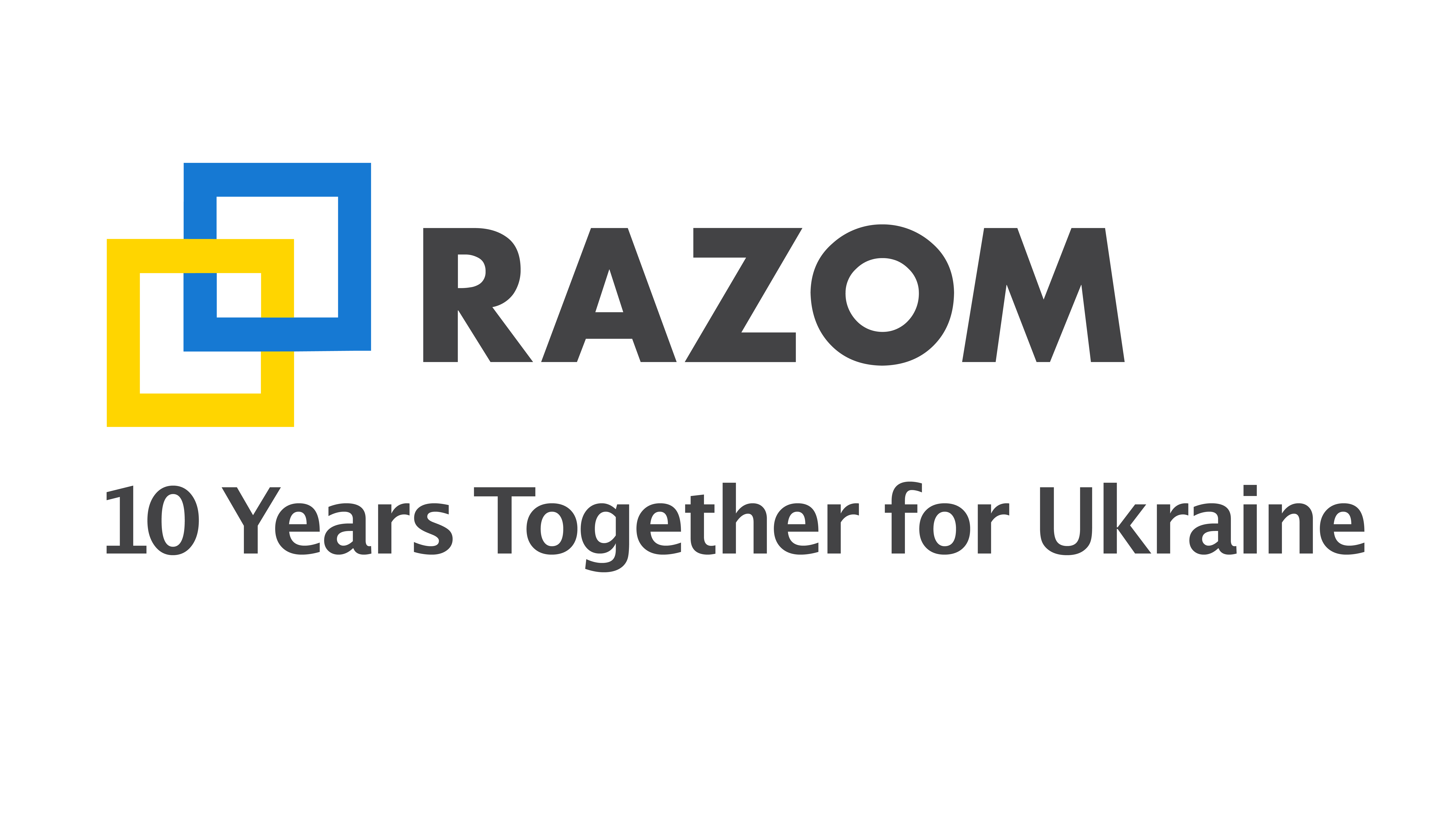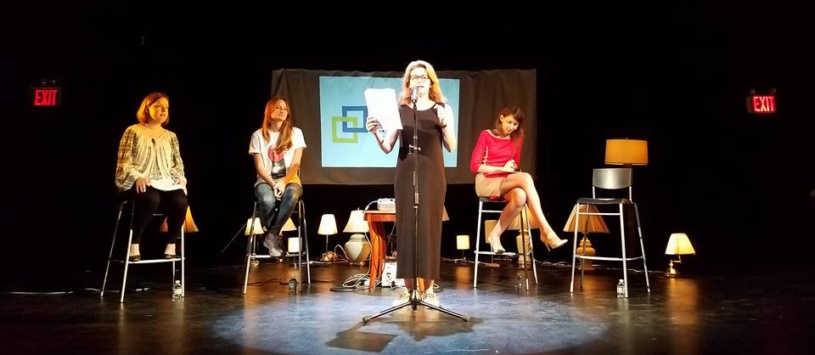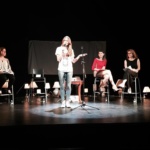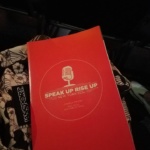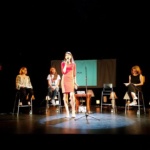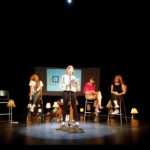No report can compare to a personal story full of emotions and energy. Four Razom volunteers performed at a storytelling festival in New York City, sharing their stories from the stage with everyone who came to listen.
The Razom Culture initiative aims to promote and celebrate the cultural beauty of Ukraine and Ukrainians. We have long done this through showcasing art galleries, musical concerts, photo exhibitions, and fashion shows. This time a totally different way of expressing “what it means to be Ukrainian” took place on a dark stage under a spotlight: Storytelling.
The genre of spoken word – when certain thoughts, beliefs, aspirations, and emotions are conveyed through a short, but intimate narrative of someone who experienced them firsthand – is familiar to Americans, but Ukrainians are still not very acquainted with the concept. It is more common for us to tell our stories to our close ones at a family dinner. Telling them to strangers in a dimmed theater hall is a step out of the ordinary. And yet, that step creates intangible bonds with others – others who have never met you before. Sharing your story with them, telling them about Ukraine, feels even more important. The audience can certainly find themselves connecting to the spoken lines, the level of empathy and connection is just unbelievable.
Four Razom volunteers – Tetiana Sydoruk, Lydia Tomkiw, Dora Chomiak and Anya Sobolevska – four different lives, four different personalities told very diverse stories. The stories shared the thoughts and feelings of what it means to be a Ukrainian in the United States, to first visit Ukraine and see your relatives, what it feels like to find y-o-u-r Ukrainian people in NYC, and the struggle of making sure people drop the “the” before Ukraine. These different stories evoke quite familiar feelings. Tetyana Dzhula, present in the audience, later shared: “your story “Am I brave?” – totally my experience, too.”
Asher Novek, a fellow member at Civic Hall, where Razom has been an active member, came up with the idea of the Speak Up, Rise Up festival, as he wanted to give people a chance to tell their stories – people, who don’t usually do storytelling.
As part of the week-long festival, he invited several nonprofits to participate by making a ‘community showcase.’ Asher offered Razom the opportunity to perform and to participate in a series of workshops over five weeks, in which he led Razom volunteers through the process of creating a story and getting ready to perform it. “I can’t imagine a more perfect fit with the mission of Razom to ‘amplify voices from Ukraine in conversations around the world’, so I was thrilled that Asher invited us,” – said Dora Chomiak.
Sometimes sharing your culture with others means sharing your story… And in order to actually be heard, you need to speak up.
By Anya Sobolevska
